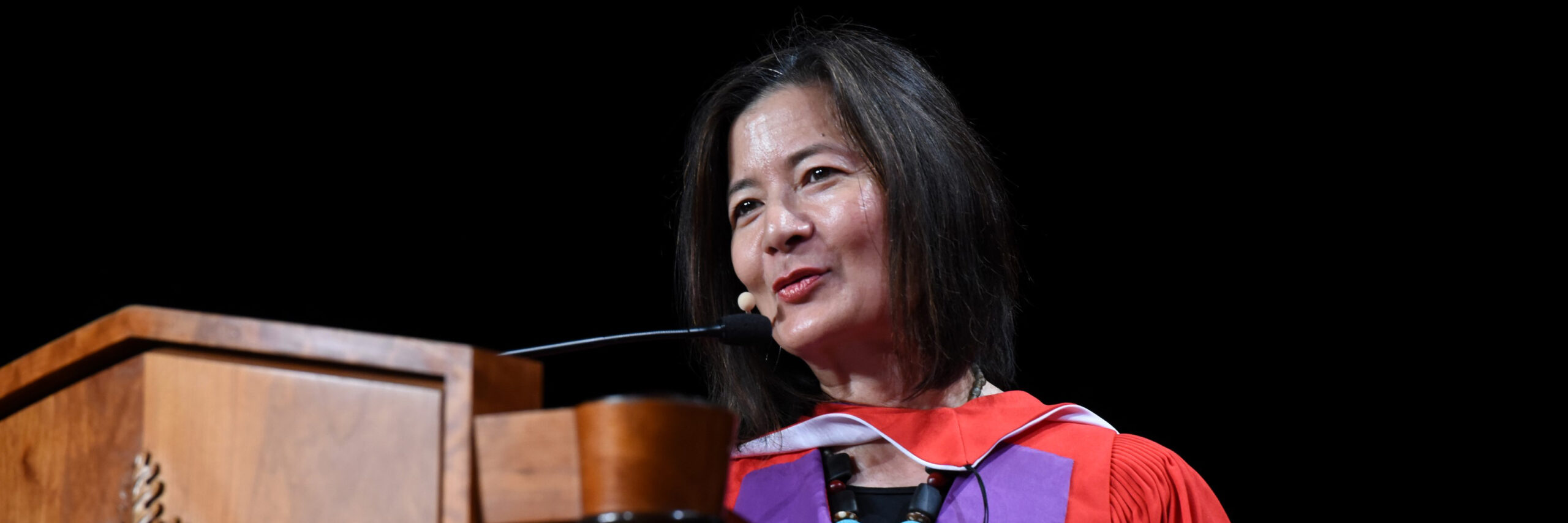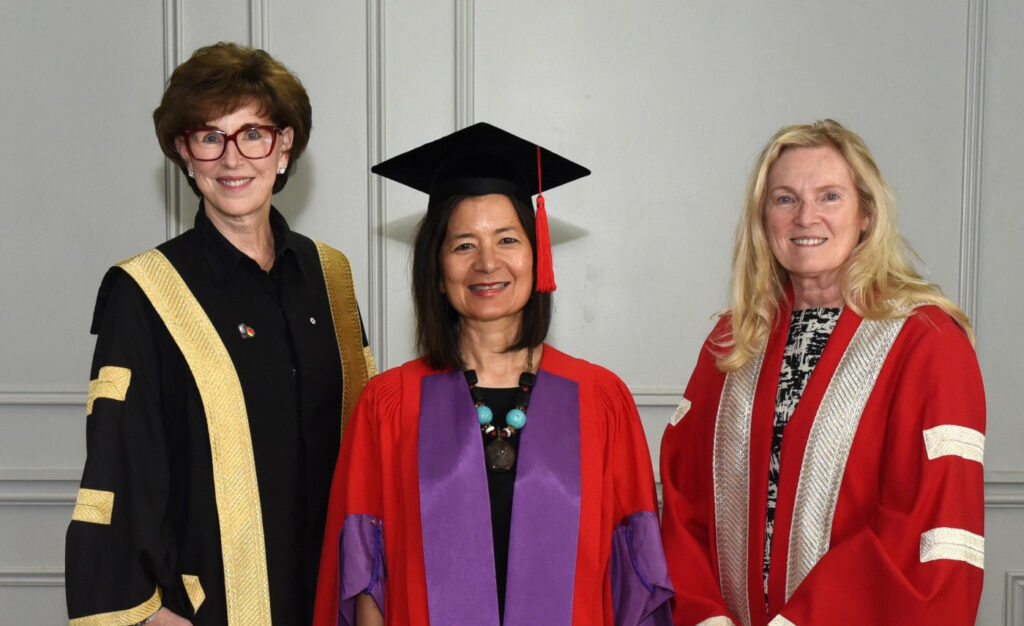
Reeta Roy, president and CEO of the Mastercard Foundation – an international non-governmental organization focused on empowering young Africans with education – offered several calls-to-action to Faculty of Education graduands to help shape the future of education.
“You have an entire lifetime of impact ahead of you,” Roy promised graduands during their June 17 convocation, as she began her address to them. “Whether you stand in front of the classroom or you get to decide what is taught in the classroom, whether you focus on expanding access to education or you set standards of education, you will make a difference in the lives of learners.”
An advocate for the transformational power of education through her work at the Mastercard Foundation, Roy made several requests of graduands as they move ahead in their careers.
She urged them to lean into one of the most important qualities teachers can possess. “As educators, one of the most important things you do – and you will do – is to recognize promise and talent in others, even before they may perceive it in themselves,” she said. “You have the opportunity to truly see the whole person – not the boundaries and not the limitations around them.”
That, she explained, can lead to something educators are uniquely positioned to do. “More than just see them, you will enable their passions, develop their confidence and help them believe in themselves so they can walk their own journeys and create their own opportunities,” said Roy.

She also called upon graduands to transform the reality of who deserves an education, as she noted there are many who struggle to access learning due to poverty, conflict, distance, disability, lack of teachers, gender and more.
Roy noted she has seen – and worked to change – this directly, through her work with the Mastercard Foundation, which advances the development of educational opportunities for African youth and their families, and looks to empower 30 million young Africans by 2030 with the creation of educational and economic opportunities.
Roy delivered her final call to action in the form of an anecdote. She recounted a trip to Moosonee, a small town in northern Ontario sometimes referred to as “the gateway to the Arctic.” She was doing work there with the Weeneebayko Area Health Authority, training Indigenous young people to become health professionals who would help the larger medical system embody Indigenous knowledge and world views about what is healthy and what is wellness.
During her visit, she encountered – in person, for the first time – an ice road.
She learned that during winters, communities transform rivers, lakes and other bodies of water into ice that's strong enough to sustain trucks and cars transporting food, fuel and necessities to otherwise isolated communities. “I was just stunned by the sophistication and the technical know-how to create these roads," Roy said. "The ice road reflected Indigenous technology based on traditional knowledge of living with the natural environment.”
At the same time, she marvelled at the cutting-edge knowledge being integrated into the unique type of infrastructure. As climate change threatens those ice roads, making it hard to predict where dangerous cracks might form, she learned that university researchers are applying emerging technologies – like sensors and artificial intelligence – to create better predictive models that can identity where cracks and ridges may form.
The ice road – its past, present and future – reminded Roy of education. “The ice road isn't just a bridge across waters," she said. "It's a bridge connecting communities and cultures. It’s a bridge connecting traditional knowledge with new forms of knowledge, connecting the past and the present.”
In that realization, she found the lesson she wanted to impart on the Faculty of Education graduands she was addressing. “You can be that bridge,” she urged. “Be that bridge.”
